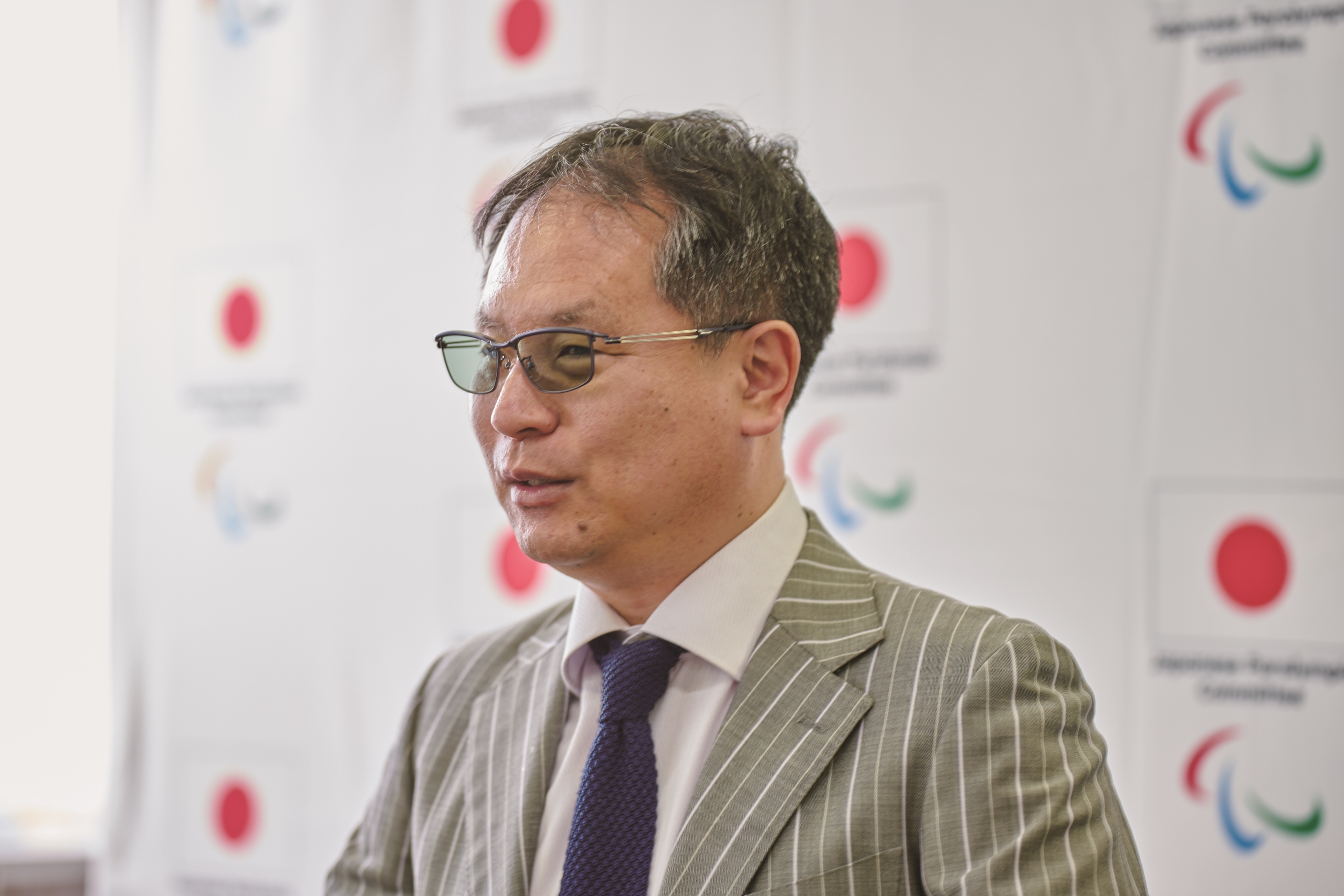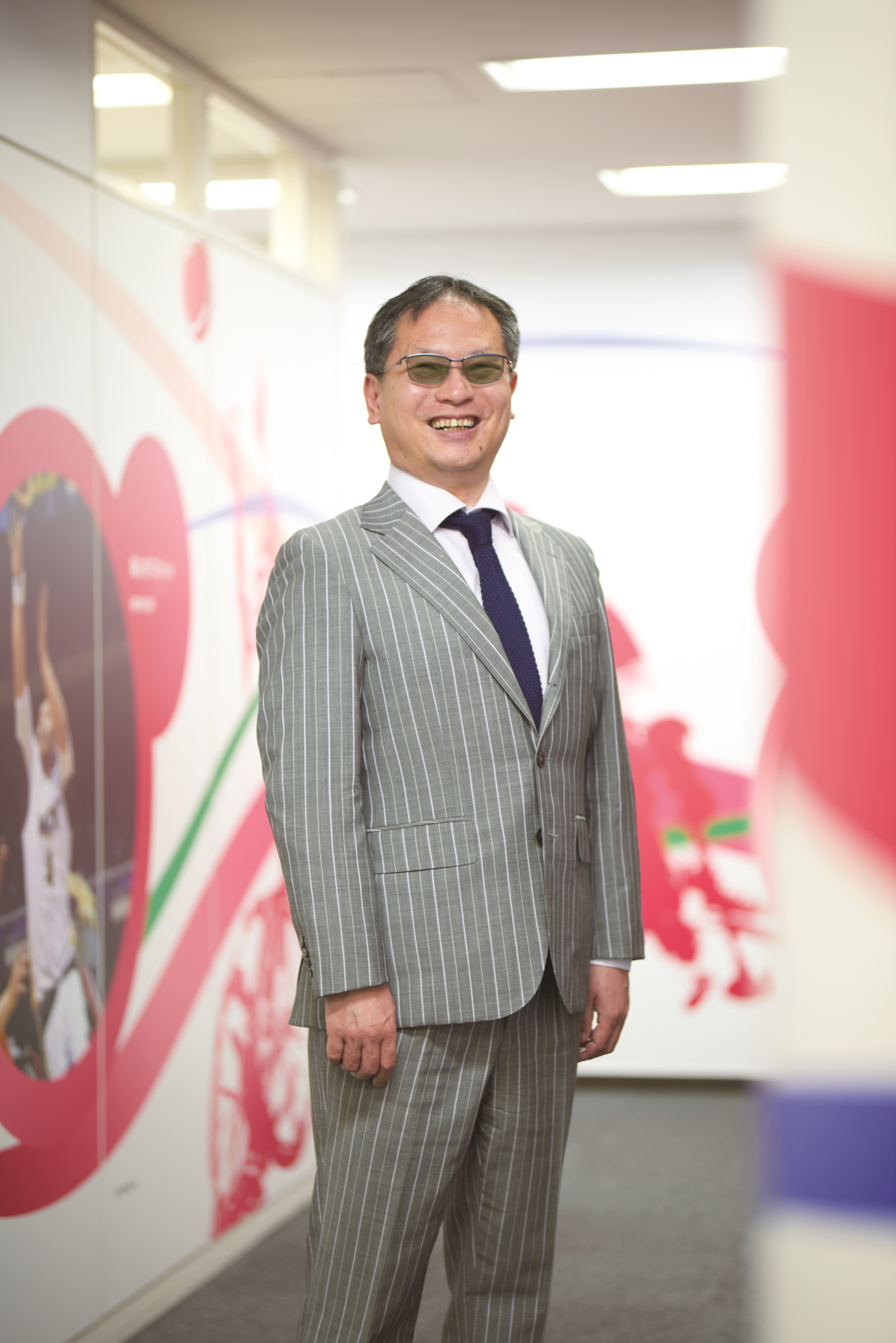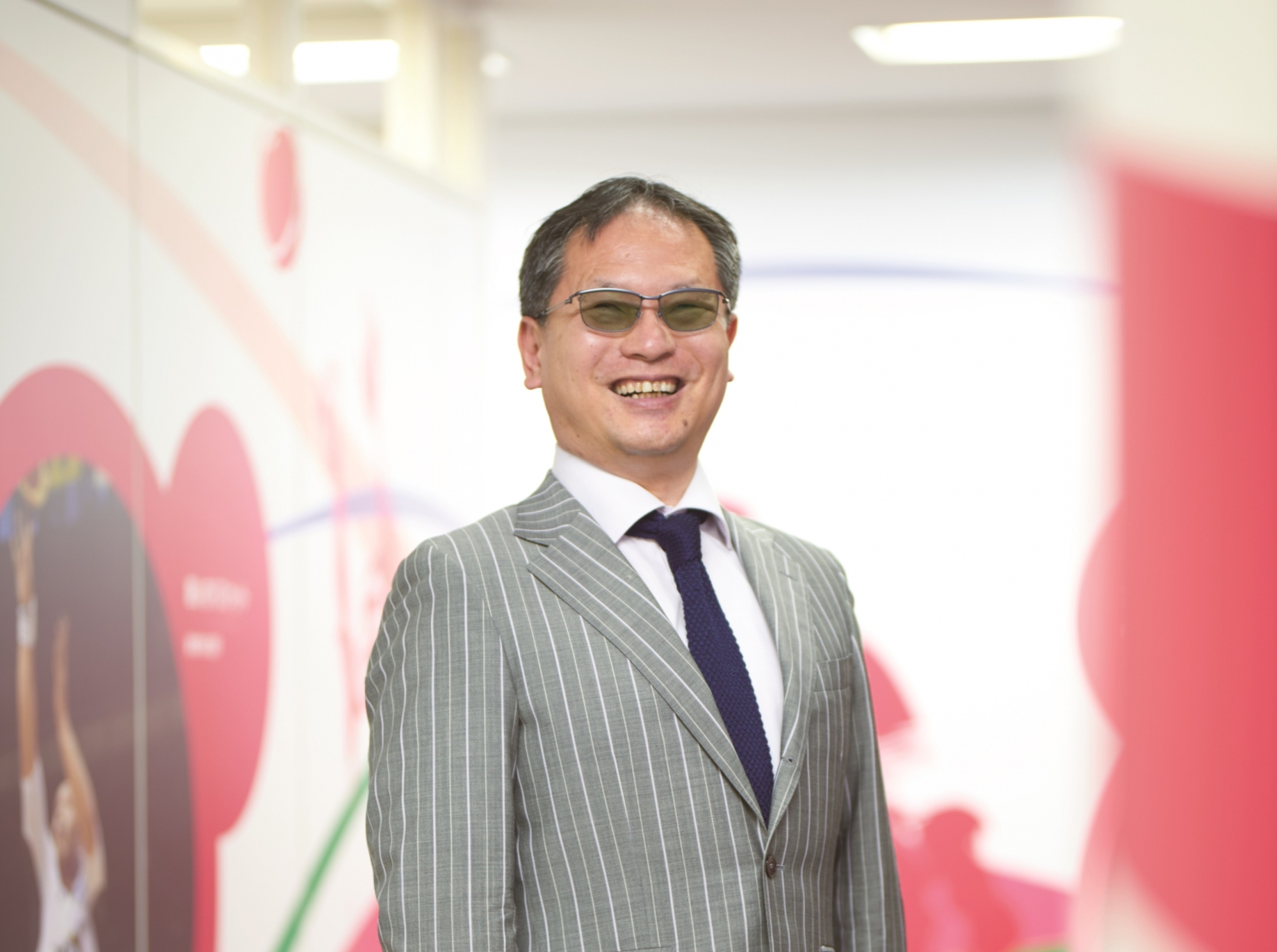Special Interview –Junichi Kawai
Tue, Nov 5, 2024-
Tags
By expressing your inner will, you will receive support from those around you.
Junichi Kawai (Executive Director, Japan Para Sports Association / Chairman, Japanese Paralympic Committee)

Junichi Kawai was born with no vision in his left eye due to congenital uveal coloboma, and became completely blind by the time he was in junior high school. He started swimming at the age of five and has competed in six consecutive Paralympics, winning 21 medals. He is a legend in the Paralympic world. Aspiring to be the world’s best swimmer, as well as to become a teacher, Kawai went on to study at the Faculty of Education at Waseda University. He had a busy student life, juggling his athletic life with his teacher training course.
“I spent my days practicing at Takaishi Memorial Pool or at the Tokorozawa Campus between my packed classes. I was grateful for the support I received from those around me; they provided a computer room with a Braille printer for me to use when writing my reports, and my friends and staff helped me register for classes. There are many students at Waseda who stand out, and I thought, ‘Being blind isn’t such a big deal,’ and I no longer thought of myself as special.”

After graduating from university, he became the first blind person to work as a social studies teacher at a public junior high school. He also coached the swimming club. He went on to graduate school in education, where he also conducted research on disability awareness education.
“At the time, welfare education in elementary and junior high schools was common, where students had the opportunity to try out wheelchairs and white canes. While this was a useful way to learn about disabilities, it seemed to me that students would end up thinking, ‘that seems tough’ or ‘that’s pitiful,’ and it didn’t really lead to a fundamental understanding of things like what barrier-free access should be. Wanting to do something about it, I re-learned educational methods at graduate school, and that experience is still useful to me today, in my work on Paralympic education and other areas.”
Kawai, who currently serves as chairman of the Japanese Paralympic Committee, focuses on supporting athletes and promoting parasports. He says that sometimes strictness is important when nurturing the next generation.
“When I coach athletes, I always say that if they don’t have an overflowing will, we can’t support them. It should be the same at university. First, you have to clearly outline what you want to learn and achieve, and then communicate what you can’t do, and then those around you will be able to help you. No matter how much hardware is in place, the only way to resolve things is through discussion between the people involved. Whether they have a disability or not, I think the first step should be taken by the individual.”
Kawai has achieved one dream after another and is forging ahead toward new goals. What kind of determination has driven his life?
“It’s fun when your dreams come true. Of course, there are many times in life when things don’t go well. But if you only choose paths that don’t hurt, you won’t be able to move forward. The privilege of the young is that you can be forgiven even if you fail. I urge all of you who are still working to hone your individuality without distancing yourself from people and your dreams.”
◆ PROFILE
Born in Shizuoka Prefecture in 1975. Graduated from the School of Education at Waseda University in 1998. Completed the Graduate School of Education in 2005. Born without vision in his left eye, he began swimming at the age of five and lost his sight at the age of 15. Competed in six consecutive Paralympics: Barcelona, Atlanta, Sydney, Athens, Beijing and London, winning a total of 21 medals, including five gold medals. In 2016, he became the first Japanese person to be inducted into the Paralympic Hall of Fame. In 2020, he became chairman of the Japan Paralympic Committee.
(Reprinted from CAMPUS NOW No.252 2024/07 –Special Feature: Current state of accessibility support)
*This article was originally written in Japanese and was translated using an automatic translation tool.














